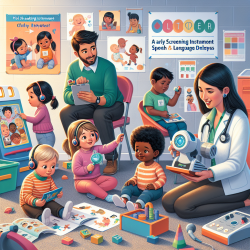The journey into marriage is often filled with joy and anticipation, but for many newly married couples, it also brings a myriad of questions and concerns about sexual and reproductive health (SRH). A recent study titled Sexual and reproductive health-related questions and concerns of newly married couples: A qualitative content analysis sheds light on these often-overlooked issues. As practitioners, understanding these needs is crucial for providing effective support and education.
Key Findings from the Research
The study revealed two primary categories of concern among newly married couples:
- The Need for a Reproductive Life Plan: Many couples expressed a lack of knowledge about contraception, preconception care, and how to handle missed periods or unplanned pregnancies. This highlights the importance of integrating family planning into premarital counseling.
- The Need for Sexual Knowledge and Counseling: Concerns about virginity, sexual problems during the honeymoon, and ongoing sexual issues were prevalent. This indicates a significant gap in premarital sexual education that needs addressing.
Implications for Practitioners
For practitioners working with newly married couples, these findings underscore the need to enhance SRH services. Here are some strategies to consider:
- Integrate Comprehensive Sex Education: Expand premarital counseling programs to include detailed information on contraception options, sexual health, and managing unplanned pregnancies.
- Provide Accessible Counseling Services: Establish dedicated SRH clinics where couples can seek advice without fear of stigma or judgment.
- Culturally Sensitive Approaches: Tailor educational materials to respect cultural norms while providing essential information on SRH.
- Encourage Open Communication: Create a safe space for couples to discuss their concerns openly with healthcare providers.
The Role of Ongoing Education and Research
The study highlights the critical role ongoing education plays in addressing SRH needs. Practitioners should stay informed about the latest research and developments in this field to provide up-to-date advice. Attending conferences, webinars, and networking with other professionals can enhance your understanding and ability to support your clients effectively.
Moreover, further research is encouraged to explore innovative ways to meet the evolving needs of newly married couples. By staying engaged with current studies and contributing to new research efforts, practitioners can help shape more effective SRH programs.
To read the original research paper, please follow this link: Sexual and reproductive health-related questions and concerns of newly married couples: A qualitative content analysis.










